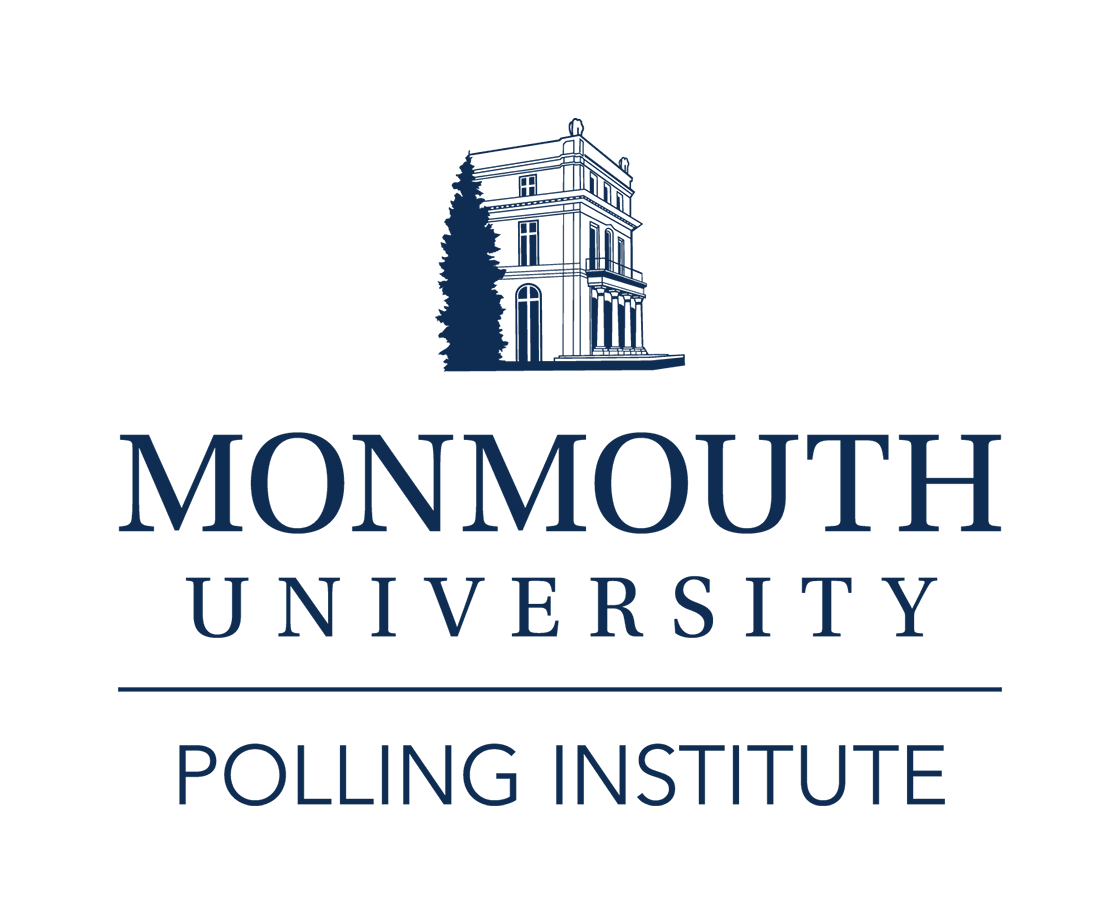West Long Branch, NJ – Donald Trump has doubled his lead over Marco Rubio in the U.S. senator’s home state of Florida, according to the latest Monmouth University Poll . Trump now has a 17 point advantage compared to an 8 point lead just last week. Many voters who approve of the job Rubio has done in his current position are backing Trump for president.
Trump has the support of 44% of likely primary voters in Florida, which is up from 38% one week ago. Rubio has the backing of 27% of his fellow Sunshine State Republicans, which is down from his 30% vote share last week. Ted Cruz earns 17% support and John Kasich has 9%, both basically unchanged from Monmouth’s prior poll.
Rubio holds a slight lead among minority voters, mainly Cuban and other Hispanic voters, of 41% to 35% over Trump, but Trump has a 46% to 23% edge among non-Hispanic whites. Trump has large leads in the northern (53% to 23%) and central (43% to 26%) parts of the state. The race is closer in Florida’s southern tier (Trump 37% and Rubio 32%), but one week ago Rubio was clinging to a slight lead in this region (41% to 30% for Trump).
“Florida is do or die for the Rubio campaign, but it looks like victory may have slipped from his grasp,” said Patrick Murray, director of the independent Monmouth University Polling Institute.
Florida Republicans are not dissatisfied with Rubio’s service as their senator, but they are not particularly thrilled with it either. About 6-in-10 likely GOP primary voters approve of the job Rubio is doing in the U.S. Senate, but just 21% strongly approve while 38% somewhat approve. Another 34% disapprove. Among those who strongly approve of Rubio’s job performance, 68% are backing him in the presidential contest while 20% are voting for Trump. Among those who somewhat approve, though, 33% are actually voting for Trump, with just 29% backing Rubio and another 24% supporting Cruz. Among those who disapprove, 70% are voting for Trump, 12% are voting for Cruz, and just 4% are voting for Rubio.
“Florida Republicans seem to be saying that Rubio has done a decent job in his current position, but not good enough to earn a promotion,” said Murray.
As more Florida voters cast their ballots in the past week, Rubio lost the lead he once held among early voters. One-third of the state’s likely GOP electorate reports already voting for president. Donald Trump has a 43% to 32% advantage among these early voters. Rubio actually had the lead a week ago, when only one-fifth of the electorate had already voted.
A week ago, just 11% of Trump supporters had voted early compared to 30% of Rubio supporters. Currently, 34% of Trump’s backers say they have already cast their vote and another 42% say they are completely set on their choice for Tuesday. Among Rubio’s backers, 42% have already voted, with another 26% who are absolutely certain they will stick with this choice on Tuesday.
“It seems that Rubio’s supporters registered their preferences at the beginning of the early voting period, but the Trump faction has more than caught up in the past few days,” said Murray. “As in past contests, we see rock solid support in the Trump vote, which means Rubio needs an eleventh hour effort to both lock in his own vote and convince Cruz and Kasich supporters to get behind him.”
The Monmouth University Poll found, however, that a two-person contest may not have boosted Rubio’s chances. When presented with a hypothetical choice between only him and Trump, 54% of Florida Republicans say they would vote for Trump compared to 39% for Rubio. This is a worse showing for Rubio from just one week ago when this hypothetical two-person race was a much tighter 47% Trump to 45% Rubio. While most Cruz and Kasich supporters would back Rubio, about 3-in-10 say they would actually vote for Trump in this match-up. Cruz might actually have done a little better in a head-to-head race against Trump in Florida, garnering 40% support to Trump’s 48%, identical to last week’s poll results.
The three trailing candidates all called out the frontrunner after violence broke out at a planned Trump rally in Chicago Friday night. Poll respondents interviewed on Saturday and Sunday were asked how that incident affected their vote intentions. Most (66%) say it had no impact on their support. However, twice as many said it made them more likely (22%) rather than less likely (11%) to support Trump. Additionally, Monmouth pollsters found that Trump’s lead in Florida increased with each night of interviewing, although it is not clear whether this was directly related to the events in Chicago or other factors in the campaign’s final days, such as advertising.
If Trump emerges as the GOP nominee, 3-in-4 Florida Republicans (74%) say they would get behind him in a general election against Hillary Clinton. However, 8% would actually vote for Clinton, 9% would vote for an independent or 3 rd party candidate, 4% say they would not vote at all, and 5% are not sure what they would do. Only half of Rubio and Kasich supporters say they would definitely vote for Trump in the general election, while three-quarters of Cruz voters would back Trump.
The Monmouth University Poll was conducted by telephone from March 11 to 13, 2016 with 405 Florida voters likely to vote in the Republican presidential primary. This sample as a margin of error of ± 4.9 percent. The poll was conducted by the Monmouth University Polling Institute in West Long Branch, NJ.
DATA TABLES
The questions referred to in this release are as follows:
(* Some columns may not add to 100% due to rounding.)
1.If the Republican primary election for president was today, would you vote for – [NAMES WERE ROTATED]
| Mid-March 2016 | Early March 2016 | |
| Donald Trump | 44% | 38% |
| Marco Rubio | 27% | 30% |
| Ted Cruz | 17% | 17% |
| John Kasich | 9% | 10% |
| (VOL) Other | 1% | 1% |
| (VOL) Undecided | 3% | 5% |
| (n) | (405) | (403) |
2.Which of the following best describes where your decision stands at this moment: I am completely decided on which candidate I will support, I have a strong preference right now but I am willing to consider other candidates, I have a slight preference among a group of candidates I like, or I am really undecided among a number of candidates?
| Mid-March 2016 | Early March 2016 | |
| Already voted | 35% | 19% |
| Completely decided | 33% | 38% |
| Strong preference | 20% | 25% |
| Slight preference | 6% | 9% |
| Undecided | 7% | 10% |
[QUESTIONS 3 & 4 WERE ROTATED]
3.If it came down to the following two candidates, who would you support – [NAMES WERE ROTATED]
| Mid-March 2016 | Early March 2016 | |
| Donald Trump | 54% | 47% |
| Marco Rubio | 39% | 45% |
| (VOL) No one | 3% | 5% |
| (VOL) Undecided | 4% | 3% |
4.If it came down to the following two candidates, who would you support – [NAMES WERE ROTATED]
| Mid-March 2016 | Early March 2016 | |
| Donald Trump | 48% | 48% |
| Ted Cruz | 40% | 40% |
| (VOL) No one | 5% | 6% |
| (VOL) Undecided | 7% | 6% |
[QUESTION 5 WAS INCLUDED SAT-SUN, n=293, moe +/-5.7%]
5.As you may know, Donald Trump cancelled a rally in Chicago Friday night where protesters and his supporters got into confrontations. Does what happened there and Trump’s response to it make you more likely or less likely to support Trump, or does it have no impact on your vote for the Republican nomination?
| Mid-March 2016 | |
| More likely | 22% |
| Less likely | 11% |
| No impact | 66% |
| (VOL) Don’t know | 1% |
6.If Donald Trump became the Republican nominee and Hillary Clinton became the Democratic nominee, who would you vote for in the general election in November – Trump or Clinton or an independent candidate, or would you not vote for president?
| Mid-March 2016 | |
| Donald Trump | 74% |
| Hillary Clinton | 8% |
| Independent candidate | 9% |
| Would not vote | 4% |
| (VOL) Undecided | 5% |
7.How would you rate the job Marco Rubio is doing as U.S. Senator – do you strongly approve, somewhat approve, somewhat disapprove, or strongly disapprove?
| Mid-March 2016 | |
| Strongly approve | 21% |
| Somewhat approve | 38% |
| Somewhat disapprove | 14% |
| Strongly disapprove | 20% |
| (VOL) Don’t know | 8% |
The Monmouth University Poll was sponsored and conducted by the Monmouth University Polling Institute from March 11 to 13, 2016 with a statewide random sample of Florida voters drawn from a list of registered Republican voters, who participated in a primary election in 2012 or 2014 or voted in both of the last two general elections or have registered since 2014, and indicate they will vote in the presidential primary on March 15, 2016. The total sample of 405 likely voters includes 220 contacted by a live interviewer on a landline telephone and 185 contacted by a live interviewer on a cell phone, in English. Monmouth is responsible for all aspects of the survey design, data weighting and analysis. Final sample is weighted for age and gender based on state registration list information on the pool of voters who participate in primary elections. Data collection support provided by Braun Research (field) and Aristotle (voter list). For results based on the total sample, one can say with 95% confidence that the error attributable to sampling has a maximum margin of plus or minus 4.9 percentage points (unadjusted for sample design). Sampling error can be larger for sub-groups (see table below). In addition to sampling error, one should bear in mind that question wording and practical difficulties in conducting surveys can introduce error or bias into the findings of opinion polls.
| POLL DEMOGRAPHICS (weighted) | ||
| LIKELY REPUBLICAN PRIMARY VOTER | ||
| 49% Male | 15% 18-34 | 80% White |
| 51% Female | 22% 35-49 | 1% Black |
| 30% 50-64 | 11% Cuban | |
| 33% 65+ | 5% Other Hispanic | |
| 3% Other | ||
Click on pdf file link below for full methodology and results by key demographic groups.




